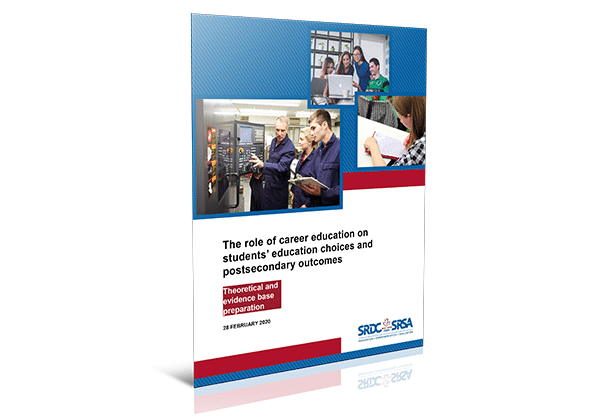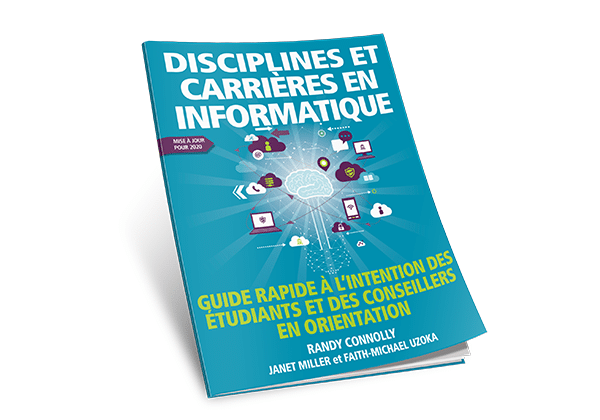
CERIC to publish French edition of popular Career Theories and Models at Work book
April 23, 2020
Report explores literature on when, where and how youth make career decisions
April 29, 2020CERIC has released an updated version of its French-language guide to computing careers, responding to strong demand for computing graduates in Canada and a changing technology landscape. Authored by Randy Connolly, Janet Miller and Faith-Michael Uzoka of Mount Royal University, the second edition of Disciplines et carrières en informatique : guide rapide à l’intention des étudiants et des conseillers en orientation provides the latest information on types of computing careers and the academic pathways to get there. The 2020 edition of the English version of the guide, Computing Careers & Disciplines: A Quick Guide for Prospective Students and Career Advisors, was released earlier this year.
The new guide describes the five main computing disciplines as defined by the Association for Computing Machinery (ACM), as well as expands on six other popular computing specializations. These descriptions are designed to help support prospective students, parents, academic advisors and career counsellors in making sense of the maze of computing disciplines and post-secondary options. For each of the main disciplines, the guide provides an overview of job tasks, as well as listing core courses, sample degrees, and other pathways at Canadian colleges and universities, including many in Quebec and other French-language institutions.
The colourful, graphic-rich guide expands on the content of the popular first edition from 2017 to answer these three questions:
- Why should you consider computing when choosing a career?
- What kind of computing jobs are out there?
- What kind of education pathways will guide you to the computing career you desire?
The guide builds on findings from a CERIC-funded international research project that surveyed thousands of students and faculty from Canada, the US and Africa. Research showed most undergraduate students did not understand the differences between computing disciplines. The guide was also developed to meet a need among career advisors supporting students interested in technology at both the secondary and post-secondary levels. The guide assists students to make decisions around computing education and career paths that align with their values, interests and skills. In particular, the guide helps equip students with adequate discipline information prior to application for program admission or prior to when they are required to choose a major.
The updated guide seeks to dispel myths about computing careers. Contrary to stereotypes, computing is often highly social. It also supports flexible lifestyles, can be creative and allows for work abroad. The guide also underscores that computer work is highly varied and is more than just programming.
The five different computing disciplines described in the guide are:
- Computer Engineering – concerned with the design and construction of computers and computer-based systems
- Computer Science – covers the widest range of computing topics from its theoretical foundations to the development of new computing technologies and techniques
- Information Technology – prepares students to meet the computer technology needs of business and other organizations
- Information Systems – focuses on integrating information technology solutions and business processes
- Software Engineering – the discipline of developing and maintaining large software systems
Specializations include: network technology, data science, bioinformatics, game development, multimedia + web development and cybersecurity.
The guide highlights that there are many pathways to most computing careers. This includes three- and four-year degrees, two-year diplomas and one-year certificates in addition to stand-alone training or post-degree specialization. The guide also notes that computing careers can be confusing to navigate, as program titles don’t always map to the five discipline areas or to job titles in the workforce.
The new edition of the guide has been enhanced with alumni profiles and additional resources. More content can also now be found on a companion website, computingcareers.ca.
In addition to the French PDF that can be downloaded for free on CERIC’s website at ceric.ca/informatique (English is at ceric.ca/computing), print copies are available at $10/copy through CERIC for bulk orders of 10 or more. Contact sales@ceric.ca for more information.

